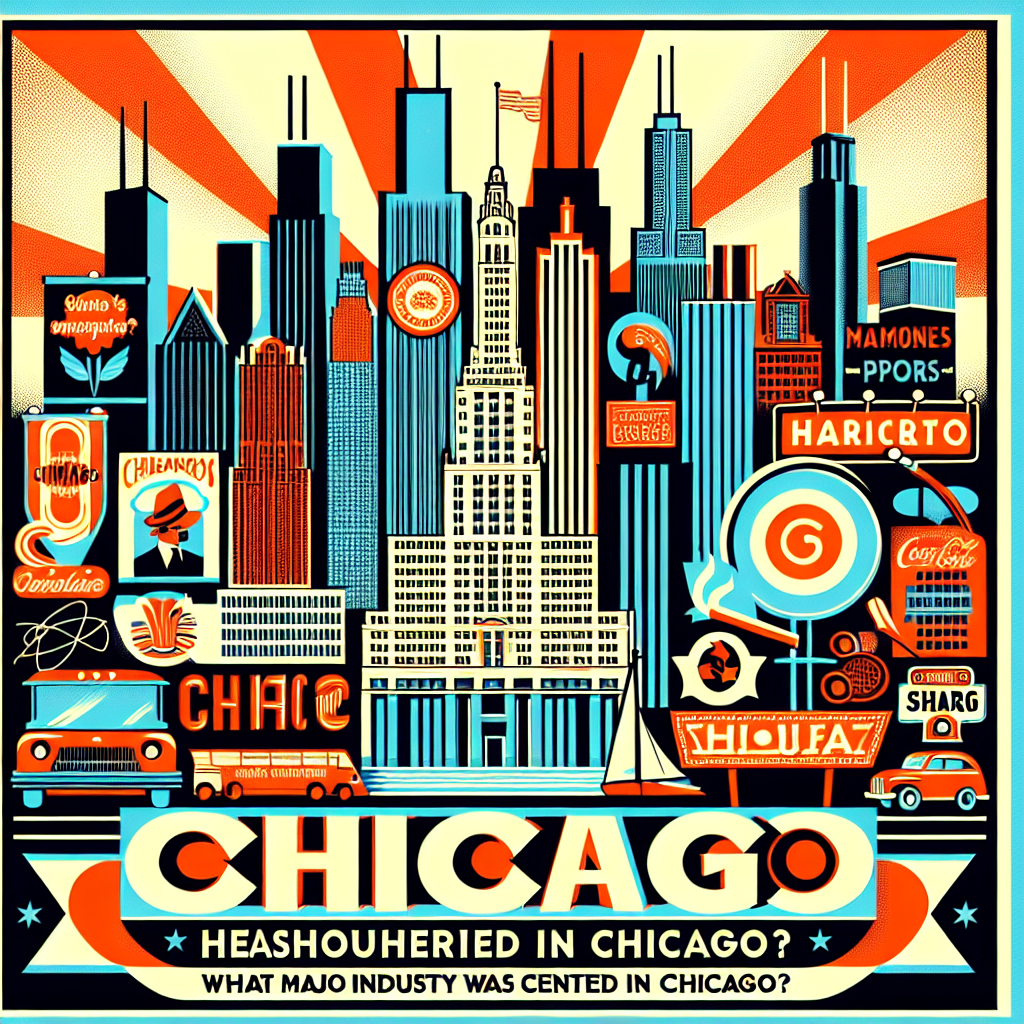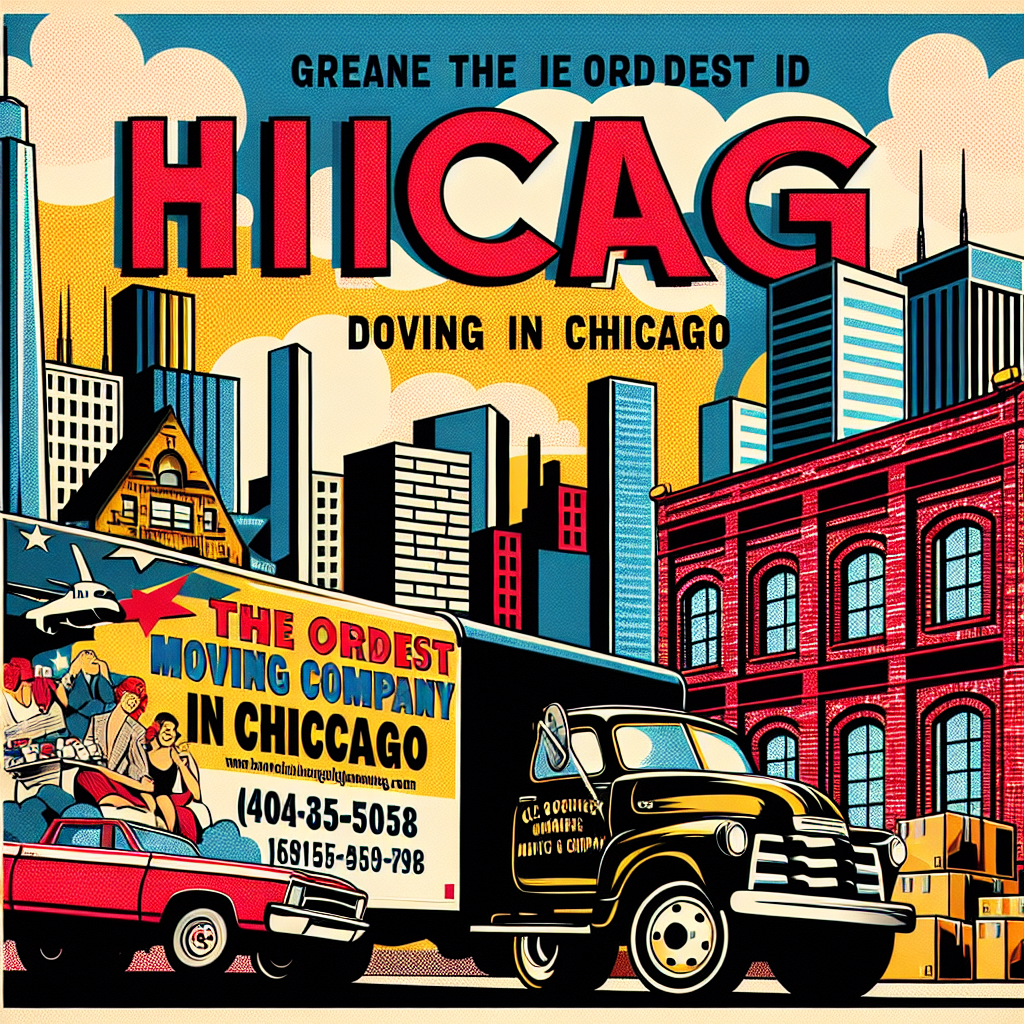Introduction
Have you ever wondered why so many companies are flocking to Chicago? This bustling metropolis is more than just a picturesque skyline and deep-dish pizza; it’s a thriving hub of industry and innovation. From its historical roots to its modern-day advancements, Chicago has been a magnet for businesses across various sectors. But what major industry was truly centered in this iconic city?
- Historical Roots of Industry in Chicago
- The Rise of Manufacturing
- Chicago’s Financial District: A Modern Powerhouse
- The Tech Boom: Chicago’s New Frontier
- Why Companies Are Moving to Chicago Today
- Key Takeaways
- FAQ
- Conclusion
Historical Roots of Industry in Chicago
Chicago’s industrial journey began in the 19th century as a pivotal transportation hub due to its strategic location. The city served as the crossroads for railroads and waterways, making it an indispensable center for commerce. This advantage laid the groundwork for Chicago to blossom into an industrial giant.
During this period, the city became synonymous with meatpacking. The Union Stock Yards, established in 1865, transformed Chicago into the “Meatpacking Capital of the World.” The stockyards were more than just a cluster of slaughterhouses; they were a symbol of American industry and innovation.
The Rise of Manufacturing
As time marched on, manufacturing took center stage. Chicago evolved into a bustling manufacturing hub, producing everything from steel to machinery. The city’s factories hummed with activity, driving economic growth and providing employment to thousands.
This industrial prowess wasn’t limited to one sector. Chicago’s diverse manufacturing landscape included giants like Pullman Company, known for luxury railroad cars, and International Harvester, a leader in agricultural machinery. The city’s ability to adapt and innovate kept it at the forefront of industrial advancement.
Chicago’s Financial District: A Modern Powerhouse
The winds of change blew once again, and Chicago emerged as a financial powerhouse. The establishment of the Chicago Board of Trade in 1848 marked the city’s entry into the world of finance. Today, the financial district, often referred to as “The Loop,” is a labyrinth of skyscrapers housing some of the most influential financial institutions globally.
The city’s financial institutions have shaped global markets and continue to be pivotal players in the financial world. From commodities trading to banking, Chicago’s financial district is a testament to the city’s enduring legacy of economic influence.
The Tech Boom: Chicago’s New Frontier
As we step into the 21st century, Chicago is no stranger to transformation. The tech boom has swept through the city, turning it into a burgeoning hub for technology and innovation. With renowned universities like the University of Chicago and Northwestern University churning out top talent, it’s no wonder tech giants and startups alike are planting their roots here.
The city’s vibrant tech scene is fueled by incubators and accelerators like 1871, fostering a culture of innovation and entrepreneurship. Companies such as Grubhub and Groupon have emerged from this fertile ground, showcasing Chicago’s potential to lead in the digital age.
Why Companies Are Moving to Chicago Today
So, why are companies still choosing to move to Chicago today? The reasons are as diverse as the city’s industries:
- Strategic Location: Chicago’s central location makes it an ideal base for reaching both domestic and international markets.
- Diverse Talent Pool: With prestigious universities and a rich cultural tapestry, the city boasts a highly skilled and diverse workforce.
- Infrastructure: Chicago’s robust infrastructure, including world-class airports and public transit systems, supports business operations seamlessly.
- Quality of Life: Beyond business, Chicago offers a high quality of life with its cultural amenities, sports teams, and vibrant neighborhoods.
For more detailed insights into why businesses are relocating to this dynamic city, explore our comprehensive guide on why companies are moving to Chicago.
Key Takeaways
- Chicago’s industrial roots stem from its strategic location as a transportation hub.
- The city evolved into a manufacturing powerhouse, producing diverse goods from steel to machinery.
- Today, Chicago stands as a financial giant with a thriving tech scene.
- Companies are attracted to Chicago for its strategic location, talented workforce, robust infrastructure, and quality of life.
FAQ
What was Chicago known for historically?
Historically, Chicago was known as the “Meatpacking Capital of the World” due to its extensive Union Stock Yards. Additionally, it became a significant manufacturing hub producing goods ranging from steel to railway cars.
Why is Chicago a financial center?
Chicago is a financial center due to its early establishment of institutions like the Chicago Board of Trade. Its financial district, “The Loop,” houses influential banks and trading firms that shape global markets.
How has the tech industry impacted Chicago?
The tech industry has brought innovation and entrepreneurship to Chicago. With tech incubators and accelerators fostering new ideas, companies like Grubhub and Groupon have emerged from this vibrant ecosystem.
What attracts companies to move to Chicago today?
Companies are drawn to Chicago for its strategic location, diverse talent pool, robust infrastructure, and high quality of life. The city’s blend of historical significance and modern advancements makes it an ideal business destination.
Conclusion
From its historical roots as a meatpacking titan to its current status as a financial and tech powerhouse, Chicago’s journey is one of constant evolution and resilience. The city’s ability to adapt and innovate continues to attract businesses from around the globe. As we look to the future, Chicago remains a shining beacon of industry and opportunity.
If you’re considering where to establish or relocate your business, remember that the Windy City offers more than just wind—it’s a gust of potential ready to propel your enterprise forward.
For a deeper dive into why companies are making the move, check out our detailed post on why companies are moving to Chicago.
To ensure your business strategies align with market trends, consult reliable sources like the U.S. Bureau of Labor Statistics. Additionally, stay updated with the latest economic insights from reputable platforms like Forbes.




